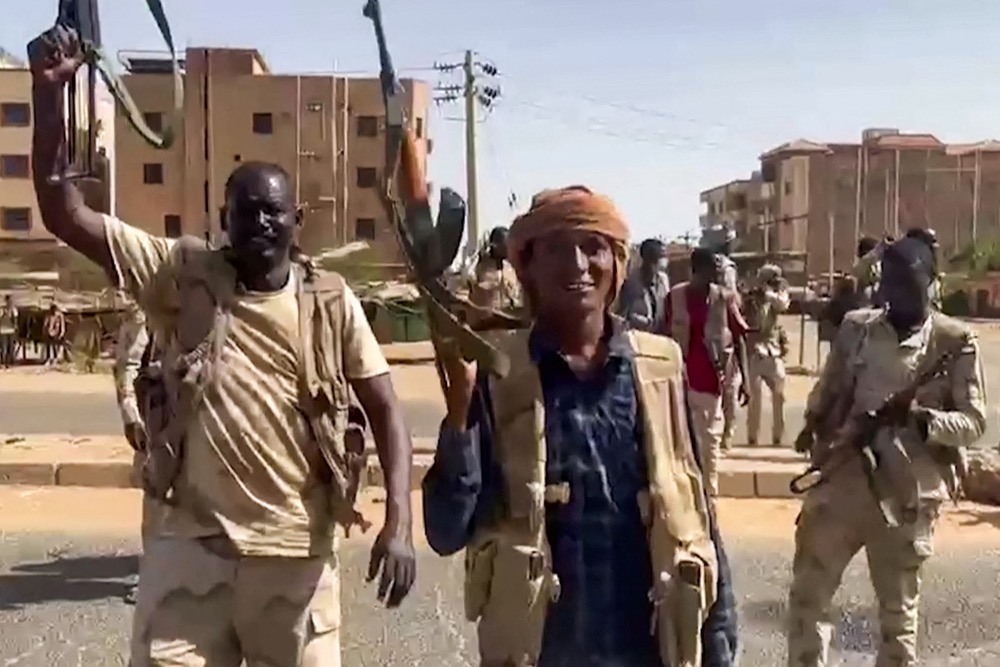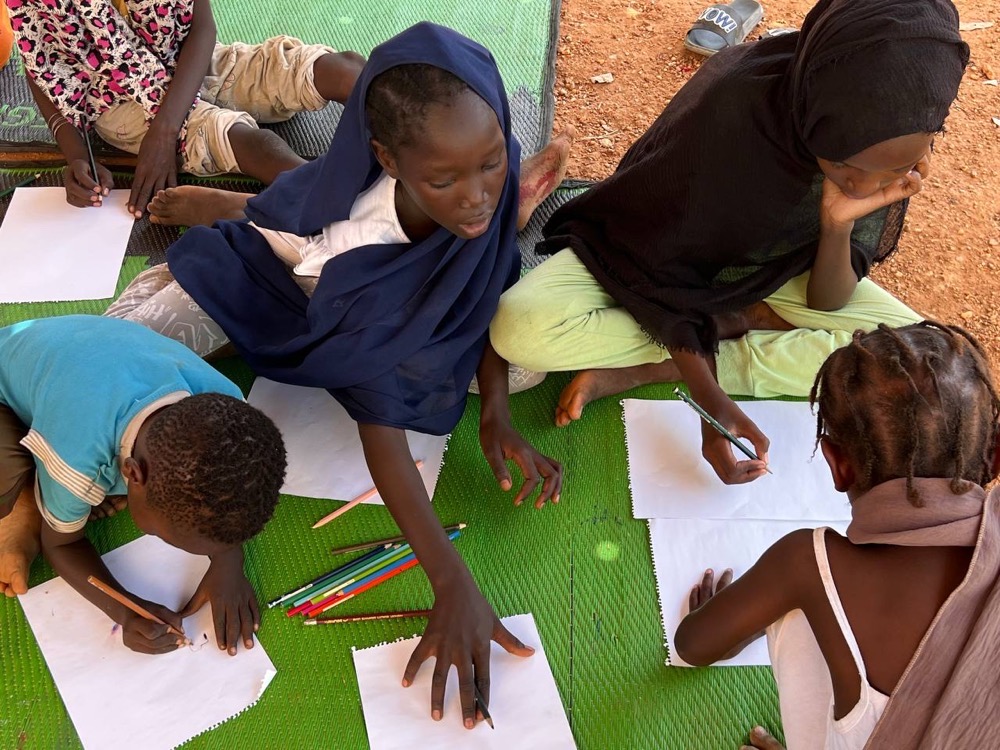CAIRO: An Israeli airstrike on a Gaza City school compound housing displaced Palestinian families killed around 100 people, the Gaza Civil Emergency Service said on Saturday, while Israel said the toll was inflated and 19 militants were among the dead.
Video from the site showed body parts scattered among rubble and more bodies being carried away and covered by blankets. Empty food tins lay in a puddle of blood, and burned mattresses and a child’s doll lay in the debris.
In another video, men prayed over a dozen body bags laid on the ground of the Tabeen school complex.
The Israeli strike drew condemnation from Arab states, Turkiye, France, Britain and the European Union and an expression of deep concern from the US, which has been working with partners to prevent the 10-month-old Gaza conflict from escalating into a regional war.
“Yet again far too many civilians have been killed,” US Vice President Kamala Harris, said during a campaign stop in Phoenix when asked for her reaction to the Gaza City strike.
Reiterating US calls, Harris, the Democratic presidential candidate running for election in November, told reporters: “We need a hostage deal and a ceasefire.”
Gaza’s Civil Emergency Service, which has a credible record in stating casualty numbers, and the Hamas-run government media office said in separate statements that the complex had been attacked while its occupants were performing dawn prayers.
“So far, there are more than 93 martyrs, including 11 children and six women. There are unidentified remains,” Palestinian civil defense spokesperson Mahmoud Bassal told a televised press conference.
Tens of thousands of displaced Palestinians have sought shelter in Gaza’s schools, most of which have been closed since Israel’s war against Hamas began.
Around 350 families had been sheltering at the compound, Bassal said — some of the hundreds of thousands of Palestinians displaced by Israel’s onslaught on Gaza.
The upper floor housing families and the lower floor, used as a mosque, were both hit, he said.
The Israeli military said the death toll was inflated.
“The strike was carried out using three precise munitions, which can not cause the amount of damage that is being reported,” the military said in a statement.
It added that no severe damage was caused to the compound, and provided aerial photos and videos which it said proved this.
The compound, and the mosque that was struck within it, served as an active Hamas and Islamic Jihad military facility,” Lt. Col. Nadav Shoshani said on X, without providing evidence.
An Israeli army official said the part of the mosque that was struck was reserved for men.
Israel says Palestinian militants embed themselves among Gaza’s civilians, operating from within schools, hospitals and designated humanitarian zones — which Hamas and its allies deny.
Hamas said the strike was a horrific crime and a serious escalation. Izzat El-Reshiq of Hamas’ political office said the dead did not include a single combatant.
A separate strike on Saturday killed three Palestinians in Al-Nuseirat in central Gaza and another killed one person in nearby Deir Al-Balah, medics said.
Later in the day an Israeli strike killed three Palestinians in Rafah, near the border with Egypt, medics said.
Separately, the Israeli military said the head of general security in Hamas’ military wing, Walid Alsousi, had been killed in southern Gaza. There was no immediate Hamas comment.
NEW ROUND OF CEASEFIRE TALKS
With regional tensions high after the July 31 assassination of Hamas leader Ismail Haniyeh in Tehran, US President Joe Biden urged Iran not to attack Israel. Iran, which supports Hamas, has blamed Israel and vowed to “punish” it. Israel has not confirmed or denied responsibility.
When a reporter asked on Saturday for his message to Iran, Biden mouthed the word “don’t.”
The Iranian-backed Hezbollah armed group in Lebanon said it launched a drone attack against military positions in northern Israel. Israel’s military said unspecified damage was reported but no casualties and that it struck several Hezbollah military structures in southern Lebanon.
The White House said it was “deeply concerned” about the Gaza school compound strike and asked Israeli officials for further details.
The European Union’s foreign policy chief Josep Borrell said on X that he was horrified by the images from the school.
A spokesperson for Palestinian President Mahmoud Abbas, Nabil Abu Rudeineh, urged Israel’s ally Washington to end “blind support that leads to the killing of thousands of innocent civilians, including children, women, and the elderly.”
A Hamas official told Reuters the group was studying a new ceasefire proposal for discussion but did not elaborate.
Speaking to Al-Jazeera television, Khalil Al-Hayya, the head of the Hamas team for the indirect ceasefire talks with Israel, said statements of condemnation were no longer sufficient.
“Dismiss (Israeli) ambassadors, close down embassies and sever ties with the occupation,” he said.
Egypt, the United States and Qatar have scheduled a new round of ceasefire negotiations for Thursday, as fears grow of a broader conflict involving Iran and Hezbollah.
Israeli Prime Minister Benjamin Netanyahu, who has said he will not end the war until Hamas no longer poses a threat to Israelis, said he would send a delegation.
Israeli Finance Minister Bezalel Smotrich pushed back against the White House’s accusation on Friday that he was “dead wrong” in asserting that the ceasefire deal on the table would be a surrender to Hamas.
In a post on X, Smotrich, one of Netanyahu’s far-right coalition partners, thanked the US for its support for Israel but insisted it “will not submit to any external pressure that would harm Israel’s security.”
Israel launched its assault on Gaza after Hamas fighters stormed into southern Israel on Oct. 7, killing 1,200 people, mostly civilians, and capturing more than 250 hostages, according to Israeli tallies.
Since then, nearly 40,000 Palestinians have been killed in the Israeli offensive in Gaza, according to the health ministry.
Gaza health officials say most of the fatalities have been civilians but Israel says at least a third are fighters. Israel says it has lost 329 soldiers in Gaza.





































